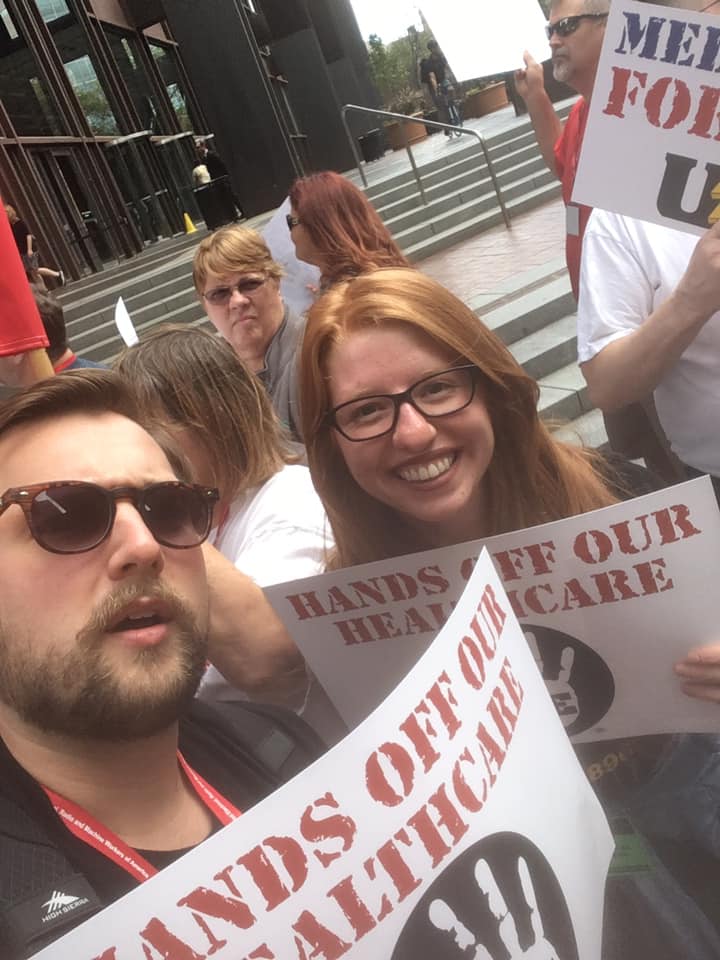By Labor and Solidarity Chair, Ashley Dorn
Contact Ashely at [email protected]
So much happened in one week at the National Convention. We sang “We’re Not Gonna Take It” at 9am, heard from activists working on climate and healthcare policy, endorsed Bernie Sanders, met and celebrated with workers from the strike against GM/Wabtec, elected a new UE President, Carl Rosen, and went on a boat ride to admire the many bridges of Pittsburgh.
I had the opportunity to serve on the most dreaded committee, the Resolutions Committee. It is dreaded for the long hours of reading, editing, and debating language and phrasing. As a graduate student, however, I felt prepared. The resolutions are authored by local unions around the country and by the national officers. Together, they constitute the policy of UE for the two years until the next convention. Serving on the committee helped me learn what issues the officers and locals are most concerned about, how they articulate problems, and how they envision equitable and safe workplaces for all of us. Throughout the rest of the week, the resolutions were read aloud by members of the Resolutions Committee so that the floor could hear, debate, suggest changes or amendments, and voice support in UE democratic fashion (passed resolutions can be read on ueunion.org under UE Policy). I read the policy on collective bargaining before the floor, which stood with workers in Iowa and North Carolina where recent law changes have gutted our collective bargaining rights.

After the morning general assembly with speakers and floor debate, we picked two workshops from a slate of offerings, including grievance procedure, organizing in an open shop, international allies, and more. I attended organizing and international allies. The organizing report and workshop emphasized that there have been tough fights across the country in the past couple years: recertification votes in Iowa, the strike against GM/Wabtec in Pennsylvania, and new locals of para educators in New Jersey and drivers for Halcon. While these fights have been difficult, they have also been successful and brought new members and new workplaces into the union.
The International Allies workshop (moderated by COGS former president Kari Thompson!) heard from a panel of representatives and translators from unions around the world allied with UE: Unifor in Canada, Frente Autentico de Trabajo in Mexico, Zenroren in Japan, and the Federation of Metallurgical Employees workers, a member of the Italian General Confederation of Labor in Italy. When the Italian representative addressed the floor, he said he would speak in Italian because his English is as bad as capitalism. Taken together, their reports made clear that the strategies used against workers to precaritize work—such as temporary positions, company unions, and poor conditions forced on migrant workers—transcend national boundaries, but so too do resistance and solidarity.
For me, attending the convention helped me understand that our local is part of a larger family. It was comforting to be met with sympathy and congratulations for our recertification process, and humbling to see the wealth of skill and experience that filled the room.